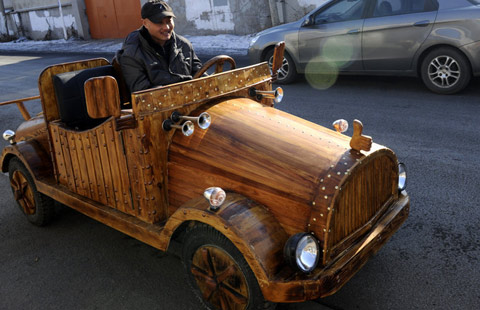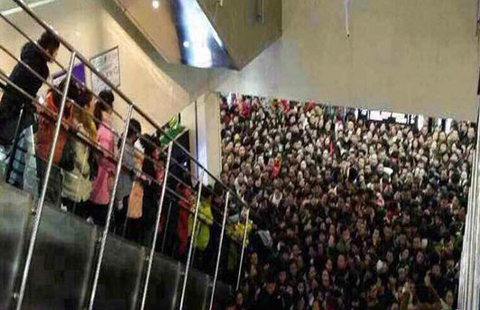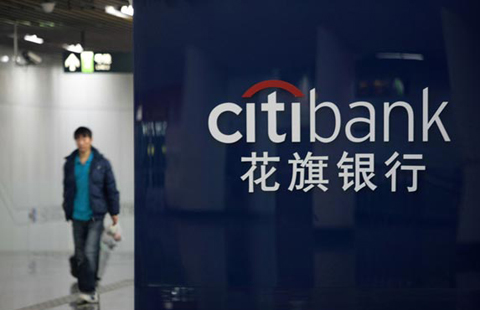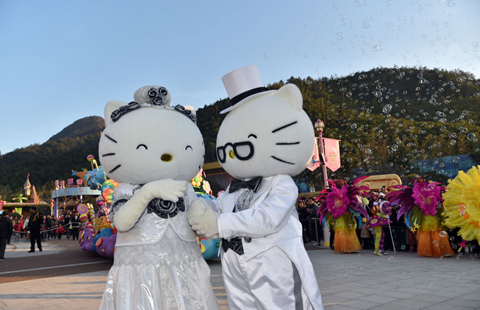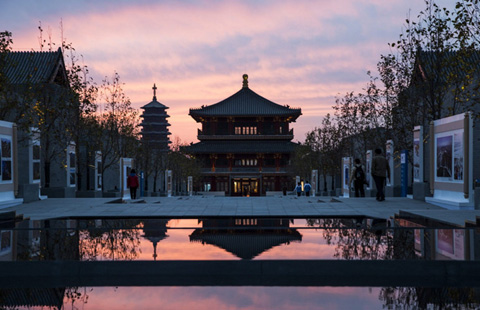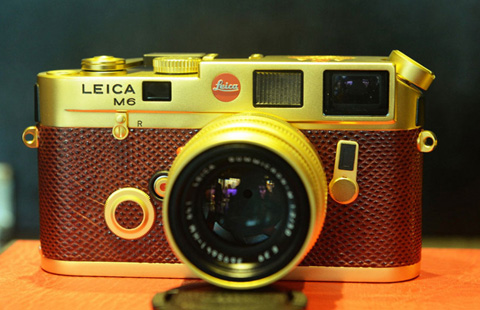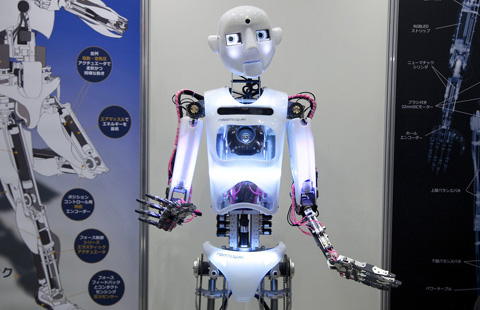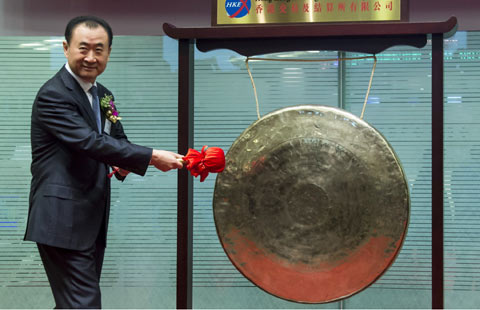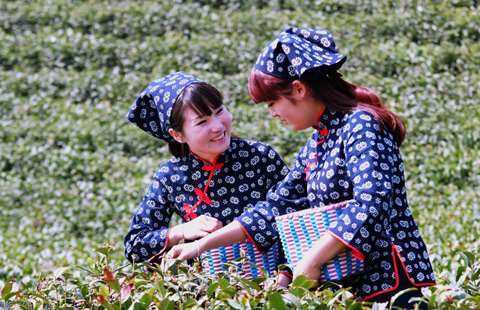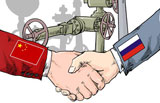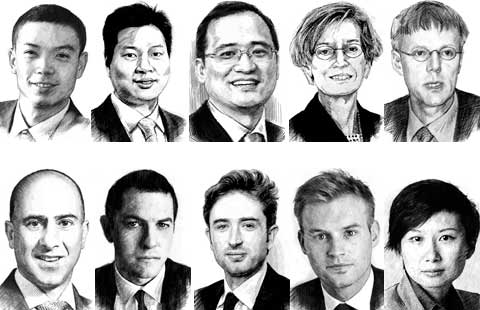Fuzhou growers turn over a new leaf with jasmine still at its core
By Hu Haiyan/Hu Meidong/Sun Li (China Daily) Updated: 2015-01-06 09:17The average price for jasmine black is about 1,000 yuan for 500 grams, he said, and the most expensive variety can cost up to 10 times that.
The company said it plans to open more franchised stores across the country, expanding on the 200 it now has.
Fujian Jiufeng Agriculture Development's tea plantation is in a mountainous area about 15 km from downtown Fuzhou, at about 600 meters above sea level, which is favorable for tea plants, said Ye.
"One reason for Fuzhou's meager exports is that tea appreciation is well beyond the knowledge of Western drinkers," Ye said.
In Fuzhou, people are apt to drink tea in gong fu cha style, at a wooden serving table and in heated cups.
Du Quanrong, an employee of Fujian Jiufeng Agriculture Development, begins the Chinese tea appreciation ceremony in a way that is familiar enough to tea drinkers worldwide: Once the water is boiled, she adds tea to it.
But the brewing process has just begun, and Du eventually dumps the entire contents of the pot, including its 20,000 yuan a kilogram jasmine tea leaves, into a hidden drain on the serving table, because the main aim of the first boiling is to "awaken" the leaves, she said.
After boiled water is poured into the teapot a second time, Du begins to serve the guests tea.
"It is important to strike a balance in providing high-quality tea, but at affordable prices," Ye said. "The general lack of interest in fine teas is simply because of the scarcity of information."
Jiang Zhou, general manager of Fuzhou Shengshun Tea Co Ltd, said his company is exporting more and more jasmine tea, and the company is making an effort to make tea appreciation more accessible to Westerners.
"Westerners are well aware of the health benefits of tea, but have little idea about the taste, let alone its origins and the procedures used in preparing and serving it.
"We are now trying to produce tea pots similar to coffee makers that are easy for Westerners to use."
Jiang's company is working with Fuzhou Mantangxiang Tea Industry Co Ltd to tap the United States and European markets.
Mantangxiang, founded in 1985, is one of the largest jasmine tea producers in China.
Its sales revenue last year was 370 million yuan, 7 million yuan of that coming from sales to Chinese restaurants in Europe and the US. The price of the group's jasmine tea ranges from 50 yuan to 300 yuan for 500 grams, said Lin Wei, general manager of Mantangxiang.
"The volume of exports is not that high, but we expect it to increase," Lin said.
Jasmine tea is one of the most popular cultural components in China, Lin said, and it takes time to promote the culture elsewhere.
"When Chinese consume jasmine tea, we don't regard it just as drinking; we see it as an essential part of our culture. It's a pity that jasmine tea's charm has not been fully revealed to the outside world."
Putting on seminars at venues such as Confucius Institutes would do a lot in helping to popularize it worldwide, he said.
Chinese jasmine tea producers can learn from foreign companies such as Lipton and Twinings in increasing the efficiency of production, he said.
"Right now it is impossible for jasmine tea to be produced on a huge industrial scale because the most refined parts of the tea and the jasmine need to be handpicked. We are producing more high value-added tea, including some with a stronger jasmine flavor, to tap the overseas market further.
"There is huge potential, but one of the biggest challenges for overseas expansion is a dearth of skilled people."
- China likely to see 60% more IPOs in 2015
- Bank of China authorized for RMB clearing business in Kuala Lumpur
- Macao's future still anyone's to bet on
- Liquidity vital to cementing stocks outlook
- Shanghai OKs oil, gas trading center
- Strong year to spark more foreign interest
- Sausage seller uses mobile payment for better hygiene
- Antitrust law may reshape vehicle sector
